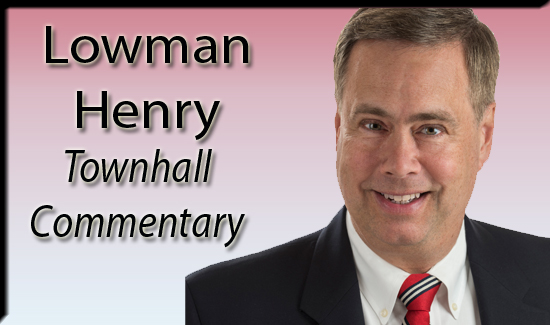His Boy Elroy

Governments, both state and national, have a primal urge to tinker in our formerly free market economy. Sometimes governments are moved to such intervention out of ideology, such as the currently in vogue strain of socialism coursing through the Democrat Party. Intervention is also born of arrogance as elected officials and deep state regulators believe they can do a better job “running” the economy. And, often, intervention comes at the behest of the private sector itself.
Such is the case here in Penn’s Woods as two examples of government picking winners and losers have generated headlines in recent weeks. One is an effort by a failing industry to survive; the other a state agency exceeding its mandate.
To wit, the Pennsylvania Turnpike Commission recently awarded a $2 million contract for a feasibility study to determine whether a cross-state hyperloop should be built. This raises a wide range of issues, not the least of which the financial instability of the turnpike itself.
The Pennsylvania Turnpike is a ticking fiscal time bomb that may soon blow up the entire state budget. Back in 2007 Governor Ed Rendell and lawmakers hatched a scheme to have the Pennsylvania Turnpike Commission toll Interstate 80 and divert a substantial portion of the revenue to the Pennsylvania Department of Transportation. The federal government refused to allow the tolling of I-80, but the turnpike was stuck making annual payments of $450 million to PennDOT.
That has not only triggered substantial toll increases on the turnpike, but legislators learned during recent budget hearings the agency has missed making several payments to PennDOT and likely will be unable to make this year’s payment. Worse, trucker associations have filed suit against the turnpike claiming the siphoning off of toll revenue to non-turnpike related projects is illegal. If they are successful, and the chances they will be are high, the turnpike will be on the hook for billions and PennDOT’s subsidies will be a thing of the past.
Given that scenario, and the fact a hyperloop falls outside the Pennsylvania Turnpike Commission’s charter to run a highway, the decision to squander $2 million to study a futuristic mode of transportation was ill advised. The company awarded the study built a test track for entrepreneur Elon Musk in 2016.
A hyperloop would put passengers and potentially freight into pods and propel them at speeds of 600 to 700 miles per hours using a vacuum system. Several companies are working to develop such systems, which do in fact show promise especially for the movement of freight, but those private firms are exactly who should be refining the technology, not the Pennsylvania Turnpike Commission.
The federal government is sticking its hands into the mix as well recently announcing the establishment of a Non-Traditional and Emerging Technology Council. There is no better way to retard or kill the development of such technologies than to clutter their pathway with government councils and commissions.
Another effort to put the foot of government on the scales of free enterprise is legislation designed to bail-out Pennsylvania’s nuclear power industry. This is an example of the industry itself seeking government intervention in a bid for self-preservation.
The fact is nuclear power has become uncompetitive in the energy marketplace due to the development of the nation’s fossil fuel resources, particularly natural gas which is plentiful in Penn’s Woods. While some in state government are seeking to tax the successful natural gas industry more, others are advocating the subsidization of an energy source that simply can’t compete.
There is also a proposal to make nuclear power part of the state’s alternative energy mandate, meaning requiring a certain percentage of energy must come from nuclear power even though it is not the least expensive source. Either a bail-out, or alternative energy mandate would mean one thing: taxpayers and/or rate payers will be paying hundreds of millions of dollars to protect an uncompetitive source of energy generated by otherwise highly profitable companies.
Such interventions as these rarely end well. In California a government-inspired high speed rail project was recently cancelled after billions in state and federal tax dollars were squandered.
High speed rail, hyperloops, energy generation all are functions that are and should be left to the private sector to develop and to implement. When government picks winners and losers there is only one certain outcome: taxpayers will be losers.
(Lowman S. Henry is Chairman & CEO of the Lincoln Institute and host of the weekly Lincoln Radio Journal. His e-mail address is [email protected].)
Permission to reprint is granted provided author and affiliation are cited.




